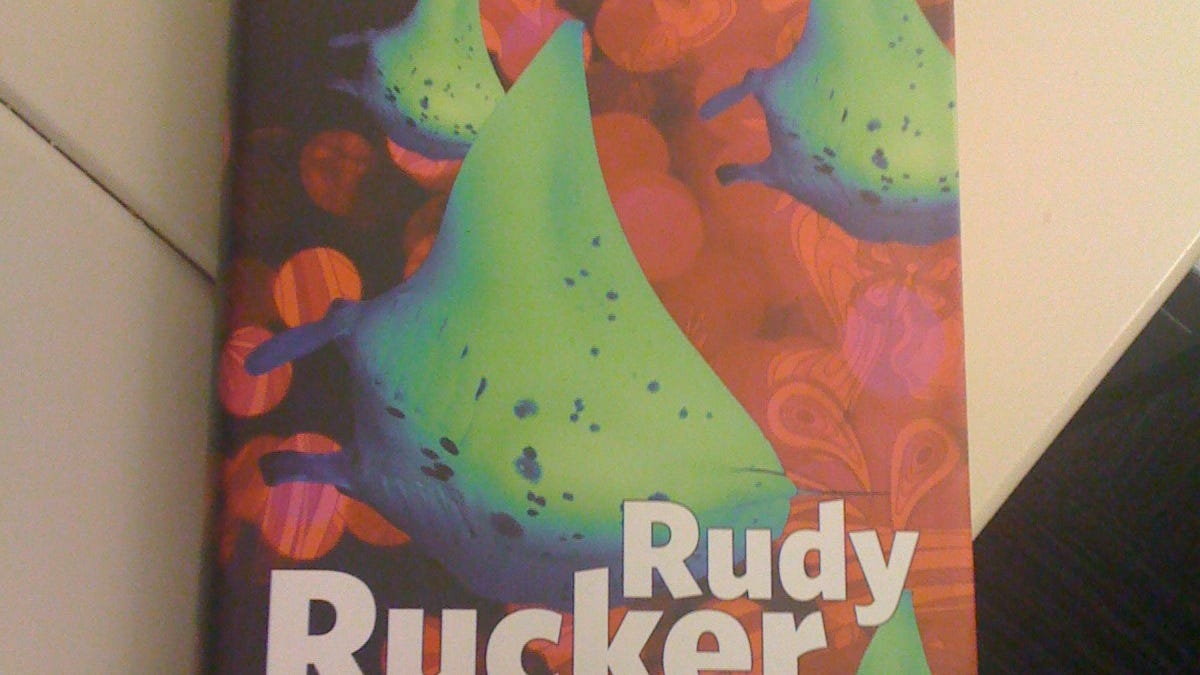 Why You Can Trust CNET
Why You Can Trust CNET Old, real book vs. Kindle alternative: Which wins?
See what happens when a CNET writer discovers that a Kindle book is going for less than the old-fashioned pulpy version. What would you do?

It's been widely debated since Amazon's Kindle began redefining the e-book space: when will e-books become more compelling than the physical books they were meant to replace?
For me, it happened. Today, at 2 p.m. Eastern, I went to Borders and returned a book I bought just a week ago. The reason was this: I found the book had popped up on the Amazon Kindle store for less. So I pulled the trigger.
The funny thing is I don't even have a Kindle. I have an iPhone 3G running the Kindle app. Yet, for me, in a crowded New York ecosystem where I barely have time or room to pull a book out of my backpack while crammed onto a subway, quick-fix iPhone reading does the trick better than anything else.
The book in question was "Hylozoic" by Rudy Rucker, an excellent and weird science fiction writer whose works I've become addicted to. I had tracked the release of his latest, a sequel to his equally odd "Postsingular," for months. I should have ordered on Amazon in the first place, where it was far cheaper than Borders' full retail, but I wanted instant satisfaction and got trigger-happy. Hylozoic wasn't available on the Kindle store when the book first hit the streets.
I submitted a "this should be a Kindle book" request to Amazon and went back to my life, when yesterday I discovered that "Hylozoic" had in fact been added...for $14.95.
Although I gave myself credit for helping this book become digital, it didn't conform to the $9.99 standard Kindle books normally are. Still, it was 10 dollars cheaper than the hardcover.
I dug up the crumpled receipt and headed uptown to 59th and Lexington. Borders took the book back, no question (I had a story ready), and I instantly purchased it on the iPhone on my way to the subway.
To my surprise, the typesetting seemed different on this book than other Kindle releases. I didn't realize fonts could be selected by the publisher. The layout was nicely achieved, unlike my download of ""="">Stephen King's "UR," which came out looking like a format-stripped .rtf file on my Kindle app.
Since switching, I wondered how many other books would fall to bits in my phone, limited by DRM to only my hands but with the benefit of slightly lower costs and the convenience of pocket-size access. Eyesight be damned, I've fallen in deep. Since announcing this to friends, some have condemned me for abandoning "pulpy books." I'm a writer, and a lover of fiction, but I say bring it on. As a urban parent and a commuter, if it weren't for phone reading, I wouldn't be reading at all.
Now, will adopting Kindle books before an actual Kindle eventually push me over the edge to a full-on Kindle purchase? I worry about that...Amazon, your plan's brilliance is abundantly clear.
Do you use an e-book reader? If so, which one? Let us know.

